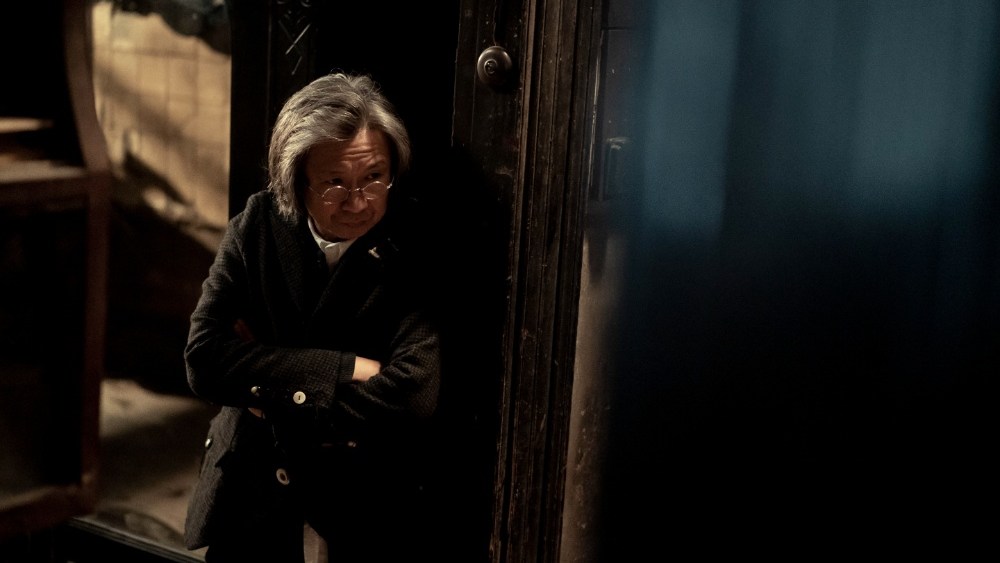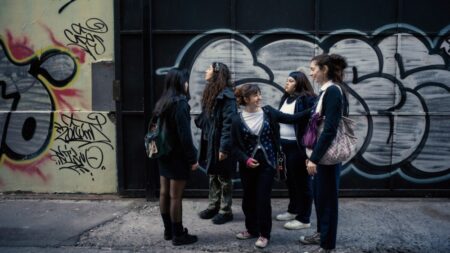Fresh from the complex journey of bringing “She’s Got No Name” to screens, director Peter Chan Ho-sun is already mapping out his next moves, with several projects in development that span from London-based martial arts fantasy to intimate marriage dramas.
Speaking to Variety during the Shanghai International Film Festival, which opened with “She’s Got No Name,” Chan revealed he’s been spending considerable time in Los Angeles working on international co-productions designed for global markets. “Most of the movies that we’re developing are movies of passion that we wanted to make, that are outside our comfort zone in our own home turf,” Chan says.
The most advanced of these projects is a martial arts fantasy that has undergone a significant geographical shift. Originally conceived as a Hong Kong-set film with an attached international Chinese actor, Chan has relocated the project to London. “I had an international Chinese actor attached, that was going to be shot in Hong Kong, which is a martial arts fantasy that is set in modern time. And I wanted to change location to London, and I’ve hired an English writer to write,” he reveals.
The project, currently titled “Anonymous,” explores a concept rooted in Chinese martial arts tradition but reimagined for contemporary audiences. “It’s about people that have lineage of martial arts from tens of thousands of years ago that would be passed on from generations to generations. And they are all masters in their own right,” Chan explains.
The story centers on individuals who possess ancient martial arts skills that function like superpowers. “These people who have this martial arts that’s like super powers that everything you saw in Chinese kung fu movies, but it’s real. And they could leap, they could put pressure points and make people stop talking or stop walking or whatever,” he says.
Originally titled “Outright Losers, Hidden Masters,” the film explores how these abilities were historically tied to power structures. “These powers only belong to fiefdoms or kingdoms or rulers in ancient China, probably even pre-written history China, and they possess these powers to rule,” Chan notes.
Chan is also developing what he describes as his most personal project – a marriage drama that draws inspiration from classic relationship films. “I have a passion project I always wanted to do that is about marriage. It’s like somewhere between ‘Scenes from a Marriage’ and ‘Two for the Road,’” he says.
The project would span two decades of a relationship. “My take on marriage, on a 20-year marriage, which needs actors to play from the age of 22 to 42, with a daughter who’s 18 or 19, which is exactly how old my daughter is,” Chan reveals. While not autobiographical, he describes it as “my personal take on what marriage is all about.”
However, Chan acknowledges the commercial challenges of such intimate material. “It’s very hard to make a movie that is not a comedy like [2024 Chinese box office hit] ‘Her Story’ that is serious about marriage, and expect audience to go to the cinema, because now the cinema experience is very important,” he explains. The project’s viability depends partly on how “She’s Got No Name” performs commercially.
Chan is also working with a young writer on what he describes as a story about economic challenges. “It’s about the economy, the downturn of the economy… it’s actually something that’s happening all over the world,” he says.
“It’s kind of like a neo-realist movie, Italian neo-realism movie, but in kind of like an anthology, in a way, of three stories that happens to three different individuals or families that are all about people that are residing – it’s like three homeless stories, basically, but they’re living in somebody’s home, and the home is already abandoned,” he adds.
Chan plans to structure the stories across different genres and time periods. “The three stories could be first, comedic horror, action and martial arts, and put them in the perspective of different eras, because they’re all narrated by these three families of three people that are moving out because they’re going to be evicted from this abandoned house the next morning. It’s like ‘Arabian Nights.’ They’re telling each other their backstory, and their backstory could be imaginations from different eras.”
Chan cites recent inspiration from genre-blending films. “I was quite inspired by ‘Sinners,’ actually. I just watched it as like, ‘wow, so it is cross genre.’ So in a way, even though that’s one story and mine’s not one story, but if I want to go to the segment to watch something big like that, it’s a small idea, but he made it much bigger than what it was supposed to be.”
All of these projects reflect Chan’s stated desire to work on something “simpler and smaller” after the epic scope of “She’s Got No Name.”
Read the full article here








